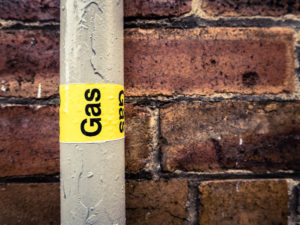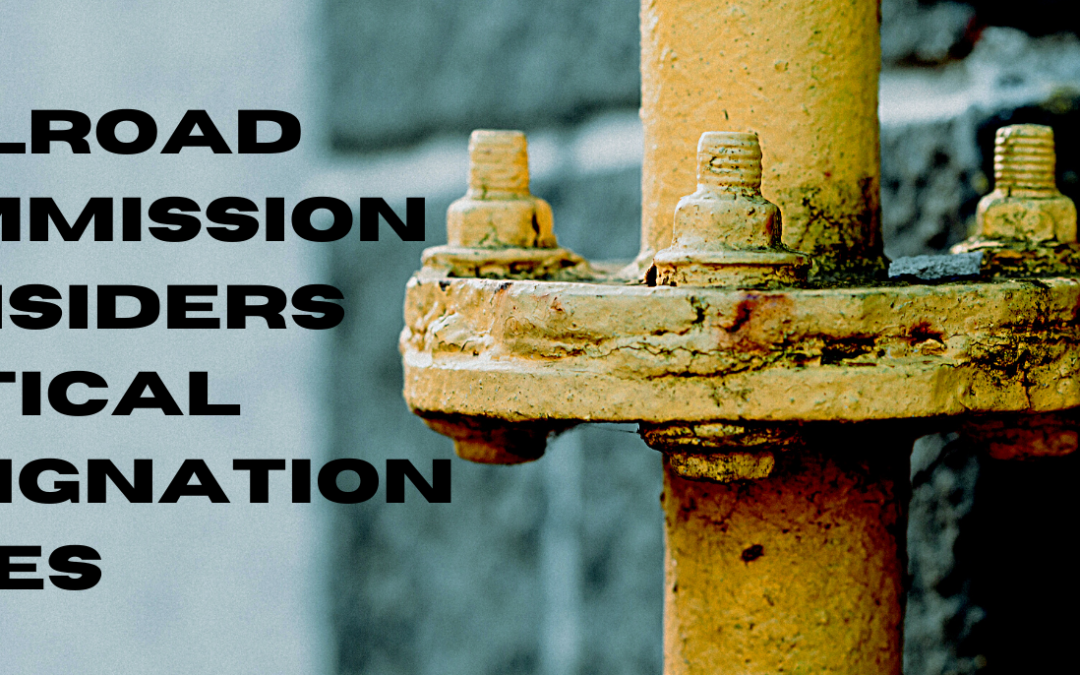The proposed rules would enact various provisions of House Bill 3648 and Senate Bill 3 — two bills adopted by the Texas Legislature this year in response to February’s statewide power outages.
________________________________________________
 Draft rules specifying how natural gas facilities are to receive “critical” designations are now under consideration by the Texas Railroad Commission. Filed September 10 by the agency’s staff, the draft rules would enact various provisions of House Bill 3648 and Senate Bill 3 — two bills adopted by the Texas Legislature this year in response to February’s statewide power outages.
Draft rules specifying how natural gas facilities are to receive “critical” designations are now under consideration by the Texas Railroad Commission. Filed September 10 by the agency’s staff, the draft rules would enact various provisions of House Bill 3648 and Senate Bill 3 — two bills adopted by the Texas Legislature this year in response to February’s statewide power outages.
House Bill 3648 directs the Railroad Commission to designate certain natural gas facilities as critical during energy emergencies. Senate Bill 3, an omnibus bill, includes various reform measures — including provisions to identify gas units critical for the state’s energy grid and to require the weatherization of such units.
“The draft rules are part of multiple collaborations our agency began during the legislative session,” said Wei Wang, RRC Executive Director. “We have been working diligently with the Public Utility Commission during the summer to ensure both our agencies’ rules on critical infrastructure go hand-in-hand.”
The draft rules would implement Section 4 of Senate Bill 3 as well as Section 1 of House Bill 3648 by specifying various criteria and processes by which natural gas facilities receive critical customer or critical gas supplier designations. If designated as critical, a natural gas facility’s operator must directly provide “Critical Customer Information” to relevant electric entities, which can include electric utilities, municipal-owned utilities and electric cooperatives, according to the proposed rules.
Critical Customer Information can include facility identification number, facility location information, emergency contact information, gas production and/or handling information, electrical power and backup power capabilities and electric utility information, according to the draft rules.
CRITICAL UNIT DESIGNATION
The rules designate the following facilities as critical: wells producing gas or casing-head gas, gas-processing plants, natural gas pipelines and pipeline facilities including compression stations, local distribution company pipelines and pipeline facilities including compressor stations, natural gas storage facilities, natural gas liquids transportation and storage facilities, and saltwater disposal facilities including saltwater disposal pipelines. “The (Railroad) Commission chooses to include these facility types, located up and down the entire natural gas supply chain, because the statistics from Winter Storm Uri reveal that during the storm, every molecule of natural gas was important,” Railroad Commission staff wrote in its September 10 filing.
The proposed new rules also require an operator of a natural gas facility designated as critical to acknowledge the facility’s critical status by filing a new form with the Railroad Commission. However, the proposed rules allow for exemptions if operators certify that their facilities are not prepared to operate during a weather emergency. The rules create a new $1,000 penalty for operators to fail to file appropriate forms relating to critical unit designation, and a new $2,500 penalty for failure to provide critical customer information.
According to Railroad Commission staff, the cost of enforcing and administering the rules will be approximately $2.5 million in Fiscal Year 2022, $1.3 million in FY 2023, $1.2 million in FY 2024, $1.1 million in FY 2025, and $1.1 million in FY 2026. The agency estimates that 6,200 operators will be required to comply with the proposed new rule and amendments.
To enact the relevant provisions of HB 3648 and SB 3, Railroad Commission staff proposes to create a new rule, 16 Texas Administrative Code §3.65, relating to Critical Designation of Natural Gas Infrastructure. Staff also proposes to amend §3.107, relating to Penalty Guidelines for Oil and Gas Violations. However, with regard to Senate Bill 3, staff said the newly proposed rules represent only a “first step” toward its implementation.
In addition to accepting written comments pertaining to the proposed new rules, the Railroad Commission has scheduled an October 5 workshop so members of the public also can weigh in.
–– R.A. Dyer


